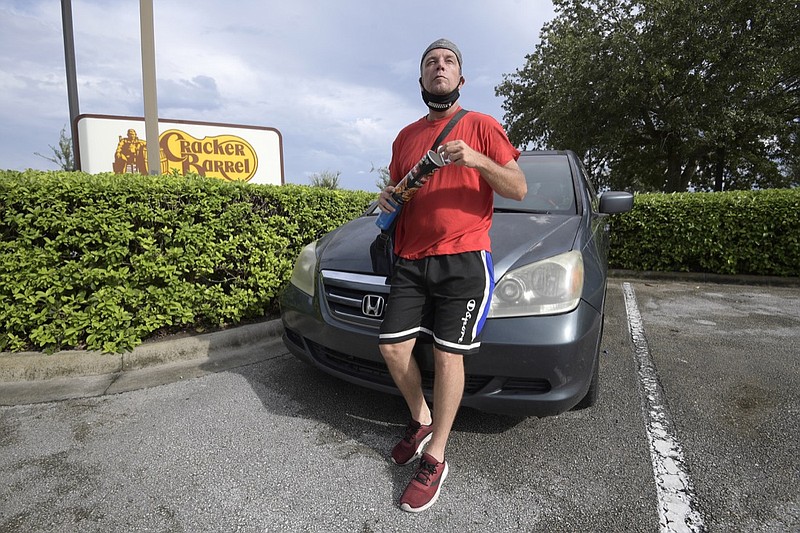A record-low share of Americans were living in poverty, incomes were climbing, and health insurance coverage was little changed in 2019, a government report released Tuesday showed - although the circumstances of many have deteriorated as pandemic lockdowns and industry disruptions have thrown millions out of work.
The share of Americans living in poverty fell to 10.5% in 2019, the Census Bureau reported, down 1.3 percentage points from 2018. That rate is the lowest since estimates were first published in 1959.
Household incomes increased to their highest level on record dating to 1967, at $68,700 in inflation-adjusted terms. That change came as individual workers saw their earnings climb and as the total number of people working increased.
Methodology changes made after 2013 also make comparing data across time tricky. But even adjusting for those differences, the 2019 income figures appeared to be the highest on record, based on census estimates.
Interviews for this year's income and poverty report were disrupted by the coronavirus pandemic, a census official said. Some economists warned that the disruptions could have made the data look too rosy.
About 26 million Americans - 8% of the population - lacked health coverage for all of 2019, a slight decrease from the 27.5 million who were not covered in 2018. The change, while small, is notable because 2019 was the first year in which the Affordable Care Act's mandate to purchase coverage was no longer in effect.
A second health insurance survey, which asks Americans if they have coverage at the moment they are interviewed, does show a slight increase in the uninsured rate, from 8.9% in 2018 to 9.2% in 2019.
The report highlights how strong the job market and economy were before the pandemic, following a record-long expansion that began in 2009. Yet it underscores how, despite those gains, many families remained vulnerable to such a major shock.
Unemployment was hovering at around 3.5% before the crisis took hold, the lowest in 50 years, and wages were steadily rising. Yet at the end of 2019, 3 in 10 adults said they could not cover three months' worth of expenses with savings or borrowing in the case of a job loss, according to a Federal Reserve survey.
Minority groups saw bigger declines in poverty in 2019, the census report showed, but also have much higher poverty rates. The poverty rate for whites dropped 1 percentage point to 9.1%; for Asians it was down 2.8 percentage points to 7.3%. Black poverty dropped 2% to 18.8%, and Hispanic poverty decreased by 1.8 percentage points to 15.7%.
Those figures suggest that many families were still on edge as state and local lockdowns prompted the sharpest job losses on record, pushing the unemployment rate up to 14.7% in April. While unemployment has declined to 8.4% as employers call temporarily furloughed workers back, that left about 10 million fewer people employed in August than in February.
Members of minority groups have been hard-hit by those job losses, as have workers with lower education levels. Economists warn that many layoffs in the service sector could turn permanent as casinos, concert venues and hotels struggle to fully reopen as the coronavirus continues to spread.
President Donald Trump, who has been highlighting the bright spots in the 2019 economy, is likely to embrace the positive news in the income and poverty report. Trump's campaign pitch focuses on the idea that his administration "built the strongest economy in the history of the world." Some data argue against that statement: Growth rates below historical records and high inequality prevailed before the crisis, and fewer people participated in the labor market than in the late 1990s.
But it is true that a record-long expansion and strong labor market were helping workers to make meaningful gains before the pandemic.
Median incomes for white, Black, Asian and Hispanic households all increased in 2019, adjusting for inflation, as poverty declined across those racial and ethnic groups, the census report released Tuesday showed.
